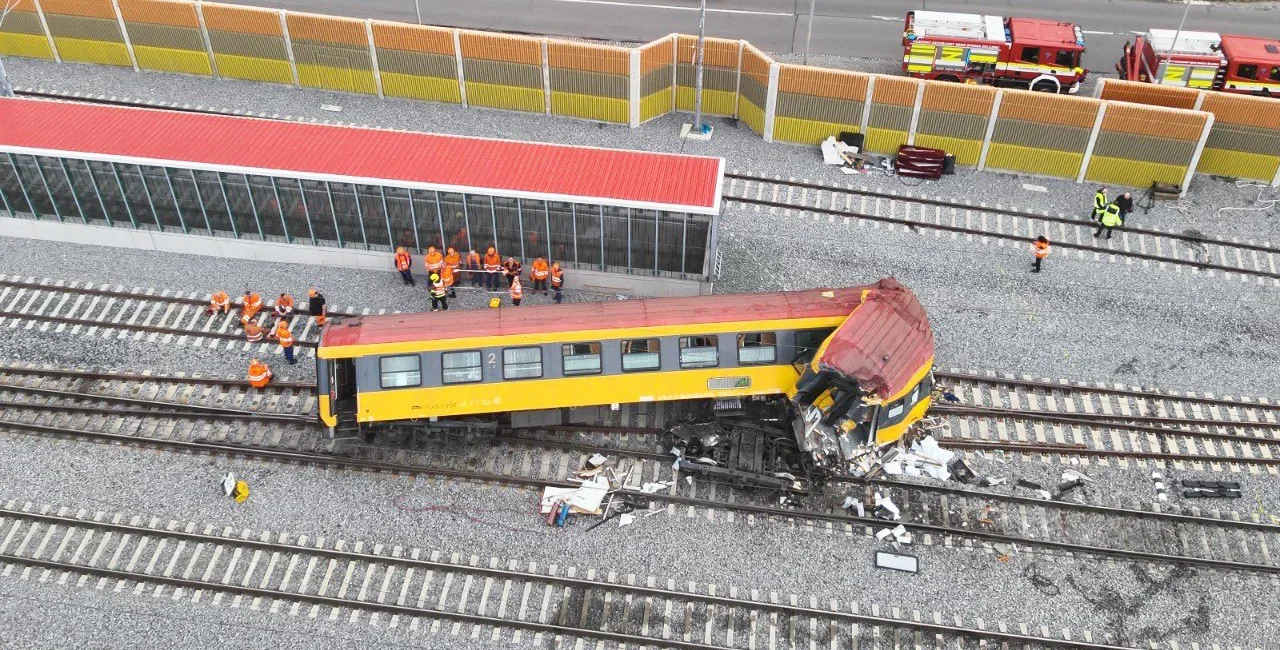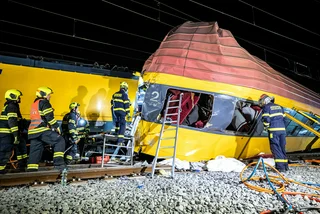In the wake of Wednesday's tragic collision in Pardubice, RegioJet has decided to decommission all 13 of its ÖBB sleeper cars from service. The company issued a press release on Saturday citing structural concerns with this type of car made evident by the crash, coupled with revelations from a prior incident in Austria.
Wednesday's devastating crash occurred between a RegioJet express train and a stationary ČD Cargo freight train. The crash resulted in the deaths of four people, two Slovaks and two Ukrainians, along with 27 additional injuries.
PARTNER ARTICLE
RegioJet's press release disclosed that a similar crash occurred in Salzburg in 2018 involving an ÖBB sleeper car of the same make, resulting in identical frame damage. Despite being unaware of this incident until now, RegioJet has opted to decommission all 13 of these cars due to safety concerns.
The 2018 collision, which occurred at Salzburg Main Station, happened during shunting operations and left a total of 54 individuals injured.
"This repeated experience led us to the decision to carry out a thorough investigation and, based on the principle of precaution, to subsequently take these cars out of service due to the suspicion of a serious structural deficiency," RegioJet owner Radim Jančura stated through the press release.
The sleeper cars will be immediately taken out of service as a precautionary measure pending further investigation into the crash. RegioJet plans to substitute the decommissioned cars with alternatives in the meantime. The company noted that other carriers also operate this type of sleeper car.
The Czech Rail Safety Inspection Office, conducting an investigation into the Pardubice crash, revealed that the RegioJet express train passed a signal prohibiting movement before colliding with the stationary freight train.
Their ongoing investigation aims to determine whether the incident stemmed from technical failure or human error. Preliminary estimates suggest damages exceeding CZK 110 million to both the trains and the tracks.
The collision stands as the most devastating head-on train crash in the Czech Republic in almost three decades. Fortunately, most injured passengers have been discharged from hospitals, primarily suffering from head and neck injuries, concussions, and bruises. Two individuals remain hospitalized for further observation.












 Reading time: 2 minutes
Reading time: 2 minutes 



























